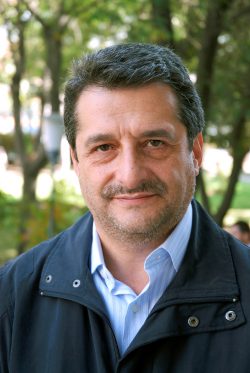CIESAL researchers are awarded Fondecyt 2024 projects
8/03/2024

CIESAL researchers have been awarded funding for two grants in the regular FONDECYT 2024 competition as co-investigators. The first project, in which Dr. Alvarado participates, will be a project whose main institution is the Universidad de la Frontera in Temuco and its director is Dr. Natalia Salinas Oñate and is entitled Public Stigma of Depression in Chile: A Multivariate and Culturally Relevant Approach. The general objective of the project is To analyse the public stigma of depression in Chilean adults, specifying the relationship between its components and the effect of the attribution of controllability and vertical individualism. To achieve this objective, three studies with the Chilean adult population are contemplated. The first study to answer the questions: What are the characteristics of the stigma of depression from the perspective of Chilean people? and How to measure the stigma of depression in a relevant way in the local context. The second study is psychometric in nature and seeks to answer the question What are the psychometric characteristics of the instruments to be used to test the hypotheses of the study? Finally, the third part, Study 3, seeks to evaluate the structure of multivariate relationships between the components of depression stigma (stereotypes, prejudice and discrimination), the attribution of controllability and vertical individualism in a sample of Chilean adults.
The other awarded grant corresponds to a project where Eva Madrid is a researcher. The project is led by Jean-Gabriel Minonzio from the Faculty of Engineering and whose lead institution is the University of Valparaíso. The project is Fondecyt Regular 1241091 and is entitled Improved Classification of Hip Fragility Fractures in Chile using Ultrasound: Towards a Better Clinical Understanding for Better Patient Care. The hypothesis underlying this project is that the two main types of fragility femur fractures, intra- or extracapsular, are respectively due to two different diseases and should, therefore, result in different patient care and follow-up. To test this hypothesis, three groups of older adult subjects will be considered: a control group without fragility hip fracture and two case groups, each with one type of recent fragility hip fracture. The control group will be recruited in the local health service with the help of Gerópolis, while the cases will be recruited in the traumatology service of the Gustavo Fricke Hospital (Viña del Mar). All patients will be measured with an ultrasonic device, Bidirectional Axial Transmission (BDAT), which was perfected during a previous Fondecyt Regular project (1201311). In addition, in fractured subjects, bone biopsies will be performed to confirm the diagnosis and assess the rate of bone remodelling. The data will be analysed using state-of-the-art Explainable Artificial Intelligence (XAI) tools in order to automatically classify patients using ultrasound measurements as well as clinical and biopsy data and propose a classification scale for diagnosis and fracture risk assessment. If successful, this approach could be applied in other Chilean hospitals in the perspective of better prevention and care of hip fractures, adapted to local conditions.



